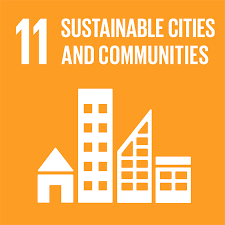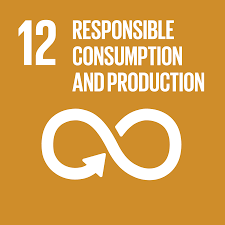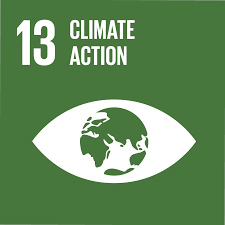The Face of Addis
- Ruth

- Nov 25, 2020
- 6 min read
This article is focused on the following UN Sustainable Development Goals:
Eyes are pained by the sight of piles of plastic bags, bottles, broken dishes, crumpled paper, food waste … an endless list. Sadly, they have no option but to see. The disturbance caused to the eyes is accompanied by the unsettling, pungent odor taken in by the nose. This is the perfect spot for bacteria to breed and for methanogenesis to occur. The green shades of the environment overtaken by waste is a common sight. This is the face of Addis.
During its early years, around 120 years ago, the city of Addis was covered with nature, free from the invasion of destructive human actions. Its vitalizing sight and richness in resources led to the establishment of the city as the capital. And it was named Addis Ababa – literally New Flower. The beauty of the city, however, did not persist. Due to irresponsible management of industrial activities, this side of Addis gave in to distorted images caused by pollution and waste. Nature was shortly overtaken by synthetic problems.
This waste management story is very much known around the city. There have been TV shows, radio segments, and articles about it that brought no significant change. With the increasing population, waste production also increases. However, since the government has other more urgent issues to tend to, the concern about waste management has been put off. Despite the Addis municipality's effort to properly manage waste, the lack of funding along with the lack of awareness has made a great part of the journey futile.
It is known that Addis presents the sliver of hope to many. It surely is a center for enlightenment. However, while city life has led many to success, it is evident that it has created a new problem: mountains of urban waste (Gray). With a population of approximately 3 million, Addis produces no less than 710 tons of waste daily. From this, 90% of it is landfilled, in the area known as Qoshe.

Qoshe, which literally translates to “garbage” in Amharic, is about the size of 36 football pitches. It is an unstable mountain, of trash, that does not promote recycling. But this appears to be just one part of the endless waste management problem in Addis.
Around Addis, the overflowing solid waste from sewage systems is clearly noticeable. Especially during heavy rain seasons, sewage tankers explode into a fetid mass of litter, polluting streets, residential areas et cetera … When this occurs, respiratory diseases break and affect a great part of the society. With the global pandemic in play, this is another great concern. Although many talk of the issue with remorse, it appears that no one implements life-changing actions.
Alemtsehay Adisu, a middle-aged female resident of Addis had a childhood dream of building a villa in her green neighborhood. Now she only hopes to live in a city with proper sewage. Alemtsehay explains,
“The primary source of the problem is the lack of awareness.”
It is understood that most residents in and/or around the city litter. It is her common encounter to see people “sweeping their compounds, only to dispose of the collected litter into sewers.” Building upon this observation, Alazar Teka, a high-school student in Addis explains that people do not “worry about their negative externality.” He emphasizes the fact that “the price paid by society is not under the worries of individuals.”
Having faulty working systems, the Addis municipality faces multiple problems under waste management. City-level bureaus explain that the collecting skips are not emptied frequently, and therefore “garbage is thrown (piled) around the container” (Waste Cycle In Addis). During rainy seasons, garbage collected gets wet and produces a foul smell. As a result, many workers fall sick and become financially unstable.
The insufficiency of the governmental budget appears to be a major factor that affects the issue of waste management in Addis. When trucks break down, they do not get repaired quickly. Furthermore, the municipality uses operations that are less costly. Trash collectors get equipment that is cheap and unreliable. These operations make the workers more susceptible to diseases, on top of reducing the chances of recovering various materials (Waste Cycle In Addis).
Due to the lack of funding, trash collectors are forced to use carts (locally known as Garri). This is very inefficient in terms of large scale waste collection. Furthermore, the usage of carts might lead to the spillage of waste in an undesired area. Sometimes, collectors dump the garbage in a shady area or nearby rivers and abstain from responsibly carrying out their duties. However, they are also victims as they do not get insurance from the government in case of disease contraction and/or other accidents. They get paid less than 50 dollars a month, which is not nearly enough to lead a balanced life. Sadly, their side of the story is usually ignored - their voices are not heard.
The issue of waste management in Addis extends to nature and the environment. Because of the lack of awareness and access to proper facilities, there are parts of society that practice open defecation around water bodies. Purification systems are not in place and people directly use water from such sources, further intensifying the problem.
In addition to what has been stated above, factories and industries directly release chemicals into water bodies. In 2015, ammonia levels in the little Akaki river was 48mg/l (in 2015), almost 25 times greater than safe water ammonia levels registered by the World Health Organization (Surface Water Quality). Unfortunately, this water source is still used to grow foods that are then transported to various parts of the country.
After approximately 4 months, March of 2021 will mark the fifth year of the Qoshe landfill incident that took the lives of and displaced hundreds of people. 5 years after such a devastating incident, there are still people that live under the shadow of death. It is a sad truth that society blocks out their voices of fear.

A dead body being pulled out of the trash after the landslide that killed several people at the Qoshe landfill in 2017.
That being said, it is important to recognize the efforts of various bodies to solve the problem at hand. One of the bodies are Qorales who are significant members of Addis’ waste management system, who get minimal credit. Their work includes the collection, purchase, and sale of used plastic products, jerry cans, and other ‘non-reusables.’ Once again, their contribution is rarely discussed.
Due to their slight build and the lack of money to support their nutritional requirements, Qorales often suffer from severe health problems (Trash into Cash). There is also discrimination against Qorales for what they do for a living. However, the re-introduction of their work in a modern way would be beneficial.
In addition, the Reppie project, which was officially inaugurated in August 2018, is a waste-to-energy incineration plant which works to tackle the issue of landfilling waste. This facility, which is the first for Africa, roughly incinerates 80% of the city’s rubbish and powers 30% of its electric needs.
Reppie is believed to turn one of Africa’s most challenging social problems, the management of waste into a source of new wealth. The Reppie plant is part of Ethiopia’s plan “to boost living standards while limiting its emissions” (Gray). Moreover, the plant supports an eco-friendly life by reducing the release of harmful gases like methane to the environment (Koigi).
That being said, if society continues to undermine the effort of key organs such as trash collectors and Qorales, the problem will not be solved. But if everyone works in unity, this problem will easily be solved. Addis will be the land where children grow healthy, and the elderly age well.
Here are a few things you can do at home to reduce waste production:
Do not throw away food, give it to someone who needs it.
Avoid single-use plastics and use reusable materials instead.
Use reusable grocery bags, refuse plastic bags from stores whenever you can.
Donate used goods, such as clothes, instead of throwing them out.
Here are a few things your school can do to reduce waste production:
Start a recycling system where you have separate trash bins for different types of trash.
Install water filters so students don't have to bring single-use water bottles.
Organize clothing drives and donate the clothes collected.
Stop selling beverages and foods with plastic packaging.
Remember, change starts with you.
External Resources
Works Cited
Abera, Meskerem. Interview.
Amare, Alemtsehay. Interview.
"Ethiopia Enhances Environmental Protections through Waste Management." UN
Environment, Sept. 2019, www.unenvironment.org/news-and-stories/story/ethiopia-
enhances-environmental-protections-through-waste-management. Accessed 12 Nov.
2019. "Ethiopia's Rubbish Policies." African Arguments, 11 Apr. 2017,
africanarguments.org/2017/04/11/ethiopias-rubbish-policies/. Accessed 25 Nov. 2019.
Regassa, Nigatu et al. "Challenges and Opportunities in Municipal Solid Waste
Management: The Case of Addis Ababa City, Central Ethiopia." (2011).
Tassie, Kassahun, et al. "Composition, Generation and Management Method of Municipal
Solid Waste in Addis Ababa City, Central Ethiopia: A Review." Asian Journal of
Environment & Ecology,
www.journalajee.com/index.php/AJEE/article/view/30088/56455. Accessed 8 Nov. 2019.
Teka, Alazar. Interview.
"This African City Is Turning a Mountain of Trash into Energy." World Economic Forum, May
2018. Accessed 8 Nov. 2019.
"Turning Trash into Cash in Ethiopia." World Management World, waste-management-
world.com/a/turning-trash-into-cash-in-ethiopia. Accessed 8 Nov. 2019.
Nugusu, Shaka. "Assessment of Surface Water Quality in Upper Awash River Basin."
AAU Institute of Technology, Department of Civil and Environmental
Engineering. A Graduate Thesis. October, 2015. Print.
Addisstandard. (2017, March 17). In-depth analysis: Qoshe garbage dump collapse: A trail of
corruption, criminal negligence and countless victims. Retrieved November 22, 2020,
from https://addisstandard.com/in-depth-analysis-qoshe-garbage-dump-collapse-a-
trail-of-corruption-criminal-negligence-and-countless-victims/






Comments